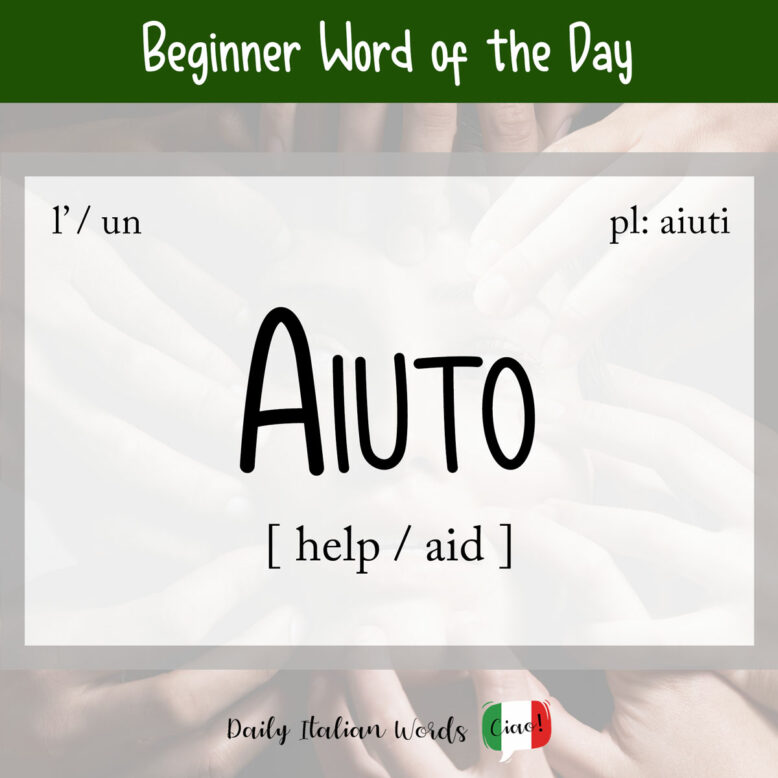Aiuto, which means help or aid, is arguably one of the most useful Italian words you can learn. After all, you never know when you might find yourself in need of assistance in a foreign country!

The noun aiuto is masculine, and used with the following articles:
- l’aiuto = the help
- un aiuto = a help
- gli aiuti = the helps
- degli aiuti = (some helps)
Aiuto comes from the Latin adiutus which in turn derives from the verb adiuvare meaning “to help” or “to assist”. Usefully aiuto is also the first-person singular conjugation (“I help”) of the Italian verb aiutare.
(io) Aiuto mio fratello a fare i compiti.
I help my brother do his homework.
You can expect to see aiuto in the company of the following verbs:
- chiedere aiuto = to ask for help
- dare aiuto = to give help
- fornire aiuto = to give help
- prestare aiuto = to provide assistance
- essere d’aiuto = to be of help
- invocare aiuto = to call for help
- accorrere in aiuto (di qualcuno) = to come to the aid (of someone)
Posso chiedere il tuo aiuto con questo rompicapo?
Can I ask for your help with this dilemma?
Sometimes aiuto can also mean support or backing depending on the context.
Non so che cosa avremmo fatto senza il vostro aiuto.
I don’t know what we would have done without your support.
In its plural form aiuti, it tends to refer to aid, as in food, clothing, and money provided to those who are in extreme need. For example, aiuti ai terremotati translates as aid for earthquake victims.

Aiuto can also describe a person who is helpful. For example, whenever my son helps me with a household chore, I always make sure to tell him Sei stato di grande aiuto! (You’ve been a big help!)
You’ll also hear it used to mean “assistant”, as in aiuto regista (assistant director) and aiuto cuoco (assistant chef), or domestic help. Note that the gender of aiuto does not change if you are referring to a female assistant.
Finally, Aiuto! can be used as an interjection, just like the English “Help!”
Aiuto! Mi hanno rubato la borsa!
Help! They stole my bag!
Heather Broster is a graduate with honours in linguistics from the University of Western Ontario. She is an aspiring polyglot, proficient in English and Italian, as well as Japanese, Welsh, and French to varying degrees of fluency. Originally from Toronto, Heather has resided in various countries, notably Italy for a period of six years. Her primary focus lies in the fields of language acquisition, education, and bilingual instruction.


